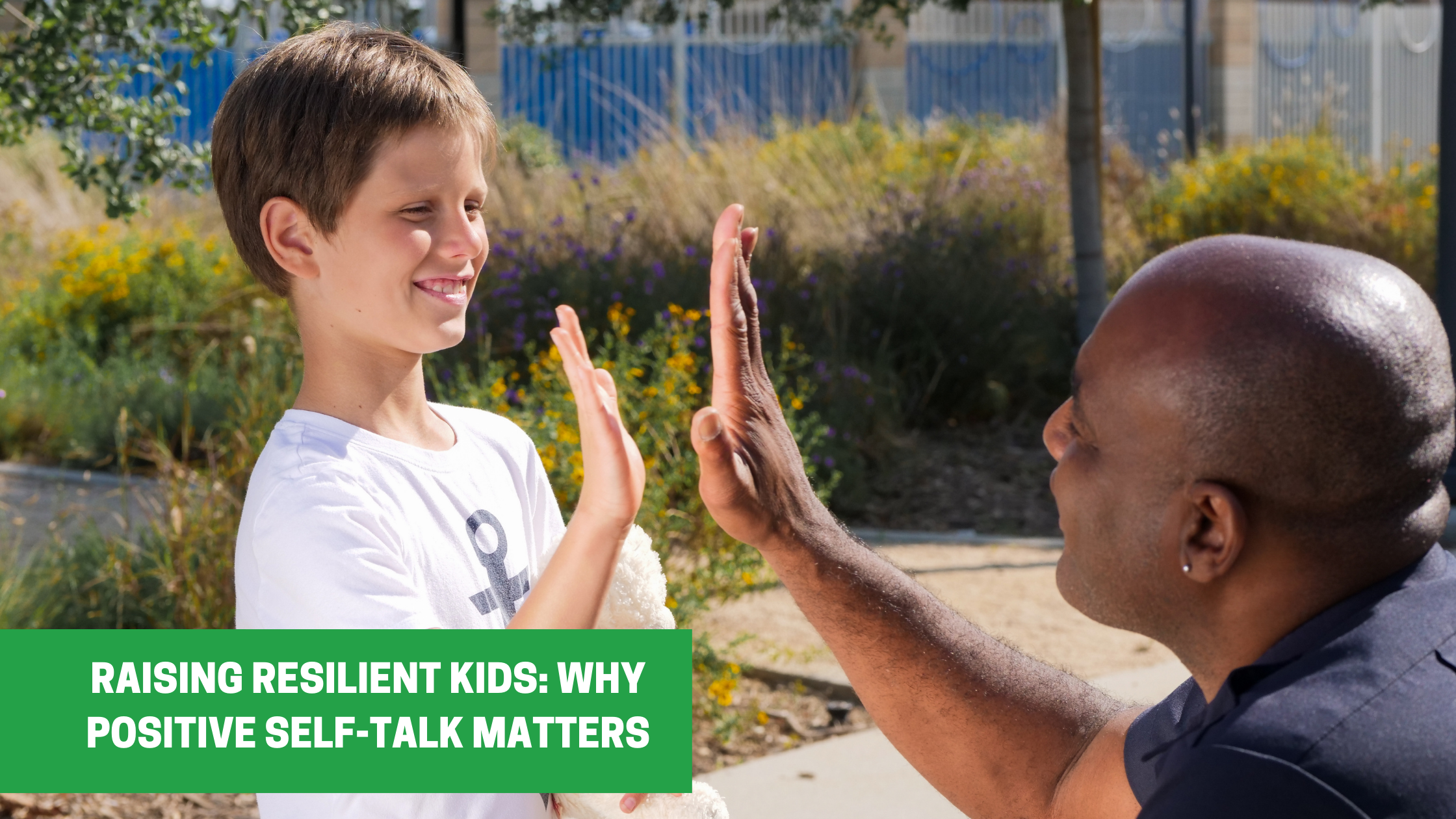Raising Resilient Kids: Why Positive Self-Talk Matters
Helping children grow into confident, resilient individuals is one of the greatest aims of parenting. Along with love and guidance, fostering a healthy inner voice—one rooted in positive self-talk—can make a powerful difference in how kids handle life’s challenges.
Positive self-talk shapes a child’s confidence, actions, and ability to bounce back after setbacks. If children learn to speak kindly and encouragingly to themselves, they’re better prepared to try new things, overcome obstacles, and manage tough emotions. That’s why understanding and nurturing positive self-talk is so important—and why Choices For Life offers dedicated counseling just for kids, supporting them every step of the way.
Self-Talk: The Inner Voice That Matters
Self-talk is the stream of thoughts that runs through our minds day in and day out. For children, these thoughts can act like a coach or a critic. Positive self-talk encourages them to persevere (“I can try again”), while negative self-talk can fuel frustration (“I never get anything right”).
Early experiences and the words children hear from parents, teachers, and friends all shape these inner messages. Positive self-talk builds self-esteem and resilience while negative self-talk can erode confidence and increase anxiety or sadness.
How Positive Self-Talk Builds Resilience
Resilience doesn’t mean always winning, but rather having the confidence to get up and try again. When kids practice positive self-talk, they develop key skills to face life’s inevitable bumps in the road:
- Challenges become chances to learn (“If I keep practicing, I’ll improve”).
- Encouraging thoughts help calm nerves during tests, games, or social situations.
- Optimistic kids try different problem-solving approaches and don’t give up easily.
- Positive self-talk is a tool for managing feelings (“It’s okay to be upset now, but I know it’ll pass soon”).
How Parents and Caregivers Can Encourage Positive Self-Talk
You play a crucial role in shaping, modeling, and teaching positive inner dialogue. Here’s how to guide your child:
- Model it yourself! Let your child hear you handle mistakes or challenges with encouragement: “That was tricky, but I know I can figure it out,” or “Everyone slips up sometimes, I’ll try again.” Kids instinctively mirror what they observe.
- Reframe negative comments. If your child says, “I’m not good at this,” gently respond with a little perspective: “Everyone learns at a different pace. Let’s work on it together.” This helps shift their words from self-criticism to self-compassion.
- Practice affirmations. Simple positive statements—like “I can do hard things” or “Mistakes help me learn”—can become powerful reminders. Help your child pick a few affirmations and repeat them together!
- Celebrate their effort, not just outcomes. Praise persistence, creativity, and willingness to learn. By focusing on the process, you show that trying matters as much as succeeding!
How Counseling Services Can Help
While positive self-talk starts at home, some children need extra support, especially if negative thoughts persist or lead to anxiety, sadness, or withdrawal. This is where Choices For Life can help. Our experienced therapists work exclusively with children, providing a safe space to explore feelings and challenges.
We use proven techniques, like Cognitive Behavioral Therapy (CBT), to help kids recognize and shift negative thinking patterns. In counseling, children learn practical skills to boost self-esteem and resilience, tailored to their unique experiences. Our goal is to empower every child with tools that support healthy thoughts and emotional strength, both now and in the future.
September Is Suicide Awareness Month: Why Early Support Matters
September is Suicide Awareness Month, a time to open conversations about mental health and the importance of early intervention. Persistent negative self-talk and feelings of hopelessness can signal deeper struggles for some children. Early support, encouragement, and professional help make a crucial difference.
If you notice ongoing sadness, isolation, or negative self-talk in your child, reaching out isn’t just helpful—it’s an act of love. It shows your child they’re not alone and that support is always available. The 988 Suicide & Crisis Lifeline is always available for text and phone calls.
The Gift of a Resilient Inner Voice
A child’s inner voice is one of their most powerful lifelong tools. By teaching positive self-talk, modeling empathy, and seeking help when needed, you lay the foundation for resilience and well-being. If your child could benefit from expert guidance, the caring team at Choices For Life is here to help – equipping children with the confidence and coping skills they need to thrive. Contact us today to learn more about our counseling programs and how we can support your family.


